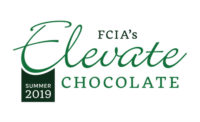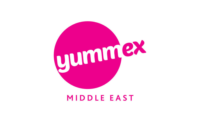Harpak-ULMA has launched a new North American initiative to help the bakery and confectionery market improve flexibility and operational performance in response to COVID-19 business disruptions.
While some producers are dealing with plummeting demand for some products, others are experiencing unprecedented spikes. Such significant production volume fluctuations place substantial pressure on both labor and packaging assets, a condition that may well represent the new normal for the foreseeable future.
Harpak-ULMA is the North American arm of ULMA Packaging, a global packaging OEM with a substantial global customer base in bakery and snacks. Its new bakery and confectionery market initiative will leverage ULMA’s extensive global market segment presence, combined with smart, connected packaging platforms, to help bakery and confectionery producers do more and go faster under adverse and rapidly changing conditions.
The agility and flexibility that smart, connected operational models deliver have been highlighted by the dramatic marketplace upheavals wrought by the COVID-19 pandemic. While producers seek a degree of operational normality, those that continue to rely on past operating practices may well find themselves rapidly losing competitive ground.
Smart, connected packaging platforms, combined with advanced automation, help producers more easily adapt to new, shared realities: they are easier and faster to integrate, maintain, scale, or repurpose. Harpak-ULMA is embedding Augmented Reality (AR) capabilities for service instructions, staff training, and remote support in its platforms.
The combination of market and technological expertise is a powerful advantage, according to Josh Becker, the company’s newly appointed market segment product manager.
“Unfortunately, much of today’s bakery packaging operations are dependent on manual processes, diverse systems and even significant IT system gaps,” Becker said. “That translates into inflexibility, data inconsistency, duplicated work, rigid processes and poor scalability. COVID-19 highlighted those limitations, but at the same time, it is accelerating executive adoption of digital and automation-focused technologies. It’s simple really – better data, when and where needed, makes it possible to go after and solve the ‘big rocks’ in bakery packaging.”
Becker noted that includes not just new, COVID-driven package format issues – such as individualized, sterile packages — but long-standing challenges such as continuous optimization of line operational equipment effectiveness (OEE). The pandemic’s impact on labor emphasizes automation's potential to reduce the risks associated with manual-labor dependency and process variations and its ability to scale throughput performance.
“It’s my experience that to ensure reliable, high OEE performance, automation must be carefully orchestrated both in the packaging line and with the production operations that feed it,” Becker said. “This is one of Harpak-ULMA’s clear differentiators, and it will prove key to our North America market expansion. Having been on the customer side of the relationship, I’m familiar with some of the more entrenched segment competitors. When you evaluate Harpak-ULMA across factors such as Total Cost of Ownership, OEE, Equipment Life Cycle, and Customer Service Support, we simply are going to provide a better value proposition.”
Becker also noted that Harpak-ULMA has seen executive interest spike in advanced digital technologies, such as AR’s visual work instructions, visual-interactive remote support and real-time performance monitoring using mobile devices such as phones or tablets, since the COVID-19 onslaught began in March 2020.
Becker previously served in various senior engineering and leadership roles at Frito Lay, Kraft Foods, Bimbo Bakeries, and most recently, as The Hershey Company’s operational lead for its North American Packaging Systems Engineering Group. In his new role, Becker will be responsible for replicating ULMA’s global footprint in the bakery and confection markets in North America.






